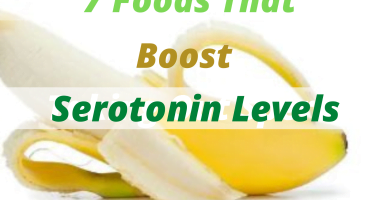Are you tired of trying fad diets that promise quick weight loss but leave you feeling hungry and unsatisfied? If so, it’s time to switch to a high-protein diet! High-protein diets are a great way to build muscle, lose fat, and improve your overall health. In this article, we’ll discuss the 5 high-protein diets to rely on for all your fitness goals.
The 5 High-Protein Diets to Rely On
1. The Paleo Diet
The Paleo Diet is a high-protein diet that emphasizes eating whole, unprocessed foods like meat, fish, fruits, and vegetables. The goal of the diet is to mimic the diet of our hunter-gatherer ancestors and avoid the processed foods that are common in modern diets.
Pros:
- High in protein and healthy fats
- Emphasizes whole, unprocessed foods
- May improve blood sugar control and reduce inflammation
Cons:
- Can be difficult to follow if you’re not used to cooking
- May be expensive due to the emphasis on high-quality, organic foods
- May be low in certain nutrients, like calcium and vitamin D, if dairy is restricted
2. The Ketogenic Diet
The Ketogenic Diet is a high-fat, moderate-protein, and low-carbohydrate diet that has been shown to promote weight loss and improve blood sugar control. The goal of the diet is to put your body in a state of ketosis, where it burns fat for fuel instead of carbohydrates.
Pros:
- Can promote rapid weight loss
- May improve blood sugar control and reduce inflammation
- Can be satisfying due to the emphasis on high-fat foods
Cons:
- Can be difficult to follow due to the restrictions on carbohydrates
- May cause unpleasant side effects like bad breath, constipation, and fatigue
- May be low in certain nutrients, like fiber and some vitamins and minerals
3. The Zone Diet
The Zone Diet is a balanced, high-protein diet that emphasizes eating a specific ratio of carbohydrates, proteins, and fats at each meal. The goal of the diet is to balance your hormones and improve your overall health.
Pros:
- Emphasizes balanced, whole foods
- Can improve blood sugar control and reduce inflammation
- Can be tailored to individual needs based on activity level and goals
Cons:
- Can be time-consuming to plan and prepare meals
- May be difficult to follow if you don’t enjoy cooking or don’t have access to certain foods
- May not be sustainable in the long term
4. The Atkins Diet
The Atkins Diet is a high-protein, low-carbohydrate diet that has been around for decades. The goal of the diet is to shift your body into a state of ketosis, similar to the Ketogenic Diet.
Pros:
- Can promote rapid weight loss
- May improve blood sugar control and reduce inflammation
- Can be satisfying due to the emphasis on high-protein foods
Cons:
- Can be difficult to follow due to the restrictions on carbohydrates
- May cause unpleasant side effects like bad breath, constipation, and fatigue
- May be low in certain nutrients, like fiber and some vitamins and minerals
5. The South Beach Diet
The South Beach Diet is a low-carbohydrate, high-protein diet that emphasizes eating lean proteins, healthy fats, and whole grains.
Pros:
- Emphasizes whole, unprocessed foods
- Can improve blood sugar control and reduce inflammation
- Can be sustainable in the long term
Cons:
- May be expensive due to the emphasis on high-quality foods
- Can be difficult to follow if you don’t enjoy cooking or don’t have access to certain foods
- May be low in certain nutrients, like fiber and some vitamins and minerals
Conclusion
If you’re looking for a way to build muscle, lose fat, and improve your overall health, a high-protein diet is a great place to start. Whether you choose the Paleo Diet, Ketogenic Diet, Zone Diet, Atkins Diet, or South Beach Diet, make sure to talk to your healthcare provider before starting any new diet. By incorporating high-quality, whole foods and a balanced ratio of protein, carbs, and fats, you can achieve your fitness goals and live your healthiest life. So, go ahead and try these 5 high-protein diets to rely on and see the difference for yourself!
FAQs
A: Yes, high-protein diets can help you lose weight by promoting satiety and reducing overall calorie intake.
A: It depends on your individual needs and goals, but most high-protein diets recommend consuming between 1-1.5 grams of protein per pound of body weight.
A: High-protein diets can be safe when followed correctly, but it’s important to talk to your healthcare provider before starting any new diet.
A: Yes, but most high-protein diets limit carb intake to promote weight loss and improve blood sugar control.









